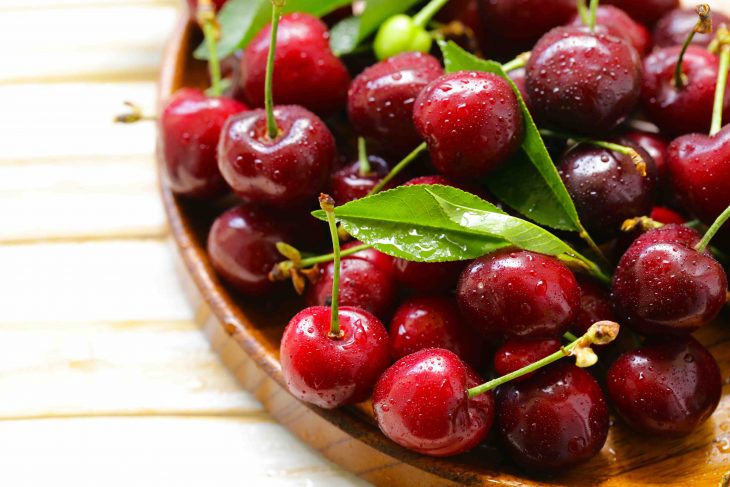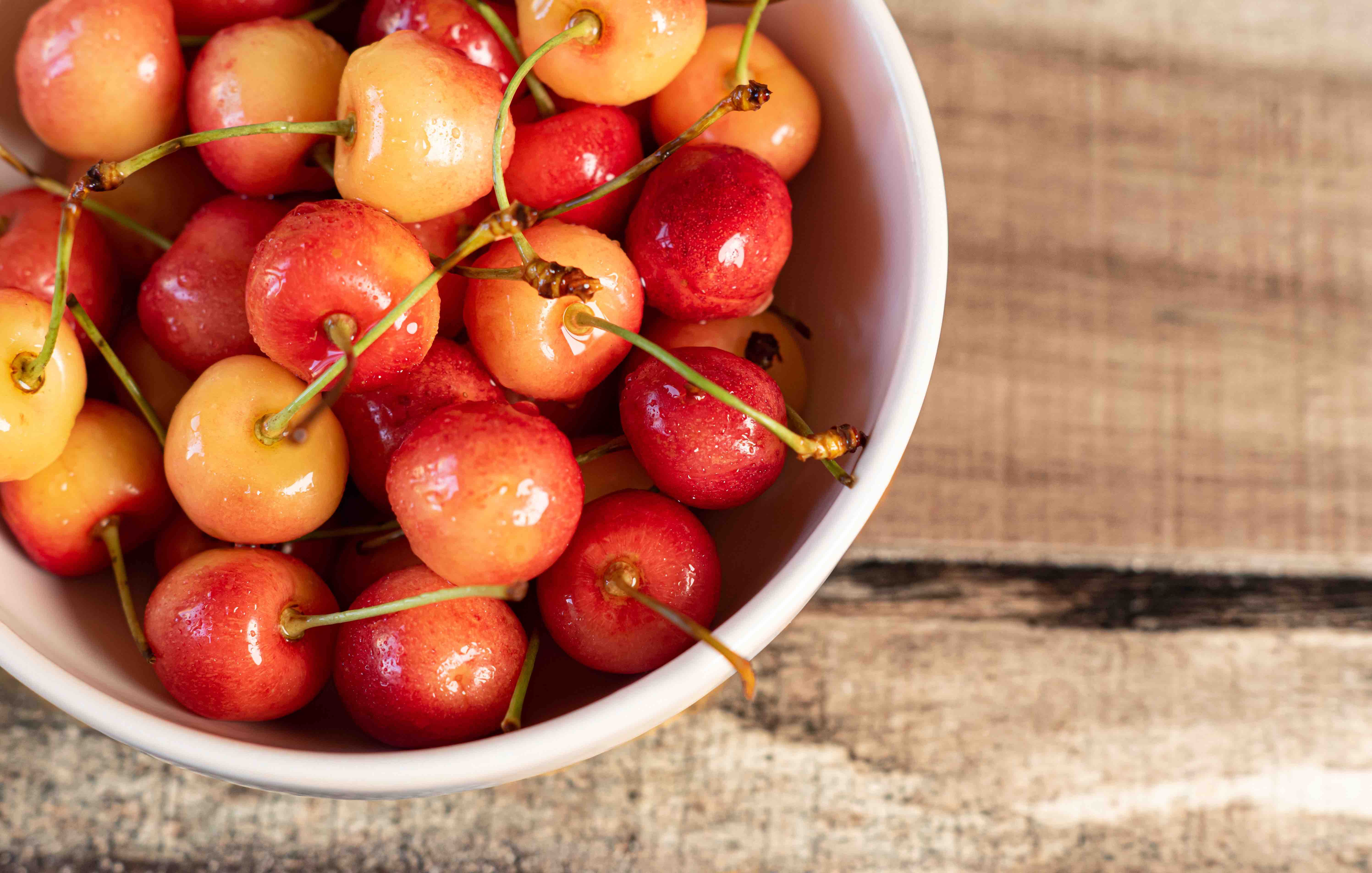
Cherries are not only delicious but also packed with nutritional benefits. These small, vibrant fruits have captivated people around the world for centuries. In this article, we will delve into 20 fascinating facts about cherries, exploring their history, varieties, health benefits, and more.
Cherries: A Sweet and Tart Delight
Cherries are a type of fruit that belongs to the Rosaceae family, which includes other fruits like peaches and plums. They are known for their sweet and tart flavors, making them a popular choice for both fresh consumption and culinary applications.
A Rich History
Cherries have a rich history that dates back thousands of years. They were first cultivated in ancient Mesopotamia and later spread to Europe and Asia. Today, cherries are grown in various parts of the world, with notable production in countries like the United States, Turkey, and Italy.
Cherry Varieties
There are two primary types of cherries: sweet cherries (Prunus avium) and sour cherries (Prunus cerasus). Sweet cherries, such as Bing and Rainier, are enjoyed fresh and have a lusciously sweet flavor. Sour cherries, like Montmorency, are more tart and are often used in baking and cooking.

Nutritional Powerhouses
Cherries are not only delicious but also packed with essential nutrients. They are a good source of vitamin C, fiber, and antioxidants, which contribute to their potential health benefits.
Antioxidant Richness
Cherries are particularly known for their high antioxidant content. Antioxidants help protect the body against oxidative stress and may have anti-inflammatory properties. Anthocyanins, a type of antioxidant found in cherries, are responsible for their vibrant red color.
Promotes Better Sleep
Cherries are a natural source of melatonin, a hormone that regulates sleep-wake cycles. Consuming cherries or drinking cherry juice may help improve sleep quality and duration.
Heart Health Support
The antioxidants and anti-inflammatory compounds found in cherries may contribute to heart health. Some studies suggest that regular consumption of cherries may help lower cholesterol levels and reduce the risk of heart disease.

Cherries and Exercise Recovery
Tart cherries, in particular, have been studied for their potential benefits in exercise recovery. Some research suggests that consuming cherry juice before and after strenuous exercise may help reduce muscle soreness and aid in recovery.
Seasonal Fruits
Cherries are seasonal fruits, with peak availability during the summer months. Depending on the variety and location, cherry season can span from late spring to early summer. Enjoying fresh cherries during their peak season ensures optimal flavor and quality.
Cherries and Culinary Delights
Cherries are not only enjoyed fresh but also play a starring role in a variety of culinary creations. They are used in pies, tarts, jams, preserves, sauces, and even savory dishes like salads and meat glazes, adding a burst of flavor and color.
Symbolism and Cultural Significance
Cherries hold cultural significance in various societies. In Japan, cherry blossoms symbolize the transient nature of life and are associated with beauty and renewal. In Western cultures, cherries are often associated with indulgence and celebration.
Cherry Blossoms
Cherry trees produce beautiful blossoms in the spring, creating a breathtaking display of delicate and fragrant flowers. Cherry blossom festivals are celebrated in many countries, including Japan and the United States, where people gather to admire the blossoms and partake in cultural festivities.

The Cherry Capital of the World
Traverse City, Michigan, is famously known as the “Cherry Capital of the World.” The region boasts ideal conditions for cherry production, and each year, it hosts the National Cherry Festival, attracting visitors from near and far.
A Versatile Ingredient
Cherries offer versatility in the kitchen. They can be enjoyed fresh, frozen, dried, or even in juice form. Dried cherries make a nutritious snack, and frozen cherries can be used year-round in smoothies, baked goods, and sauces.
A Favorite Pie Filling
Cherry pie is a beloved dessert, especially in the United States. Tart cherries, often the preferred choice for pie filling, bring a tangy sweetness that pairs perfectly with a flaky crust. Cherry pie has become an iconic treat enjoyed during holidays and summertime gatherings.
Traditional Medicinal Uses
Cherries have a long history of traditional medicinal uses. In folk medicine, cherry preparations were used to alleviate conditions like arthritis, gout, and insomnia. While further scientific research is needed, cherries’ potential health benefits continue to be explored.
A Bounty of Colors
Cherries come in a variety of colors, including shades of red, yellow, and black. Each color variant offers a slightly different flavor profile, allowing for a diverse and exciting culinary experience.
Cherries and Bees
Cherry trees rely on bees for pollination. When cherry blossoms bloom, bees play a vital role in transferring pollen from one blossom to another, ensuring successful fruit formation. Cherries, in turn, provide a food source for bees, contributing to the delicate balance of ecosystems.

Cherries and Wildlife
Cherry trees provide food and habitat for various wildlife species. Birds, such as robins and cedar waxwings, are particularly fond of cherries and play a role in seed dispersal. The presence of cherry trees in natural habitats supports biodiversity and ecosystem health.
Preserving Cherries
To enjoy cherries beyond the peak season, they can be preserved through canning, freezing, or drying. Canned cherries are a pantry staple and can be used in a variety of recipes. Dried cherries make a convenient and nutritious snack, and frozen cherries retain their flavor and texture for use in smoothies and baked goods.
Final Thoughts
Cherries are not only a delightful treat but also offer numerous health benefits and cultural significance. Whether enjoyed fresh, baked into a pie, or sipped as juice, cherries bring a burst of flavor and vibrant color to various culinary creations. So, embrace the cherry season and savor the goodness of these exquisite fruits!
Frequently Asked Questions (FAQs)
Are cherries a good source of vitamins?
Yes, cherries are a good source of vitamin C, providing a portion of the recommended daily intake. Vitamin C is essential for immune function and acts as an antioxidant in the body.
Can cherries help with arthritis pain?
Some studies suggest that cherries, particularly tart cherries, may help reduce inflammation and alleviate symptoms of arthritis. However, further research is needed to establish a definitive connection.
Are there different types of sweet cherries?
Yes, there are several varieties of sweet cherries, each with its own flavor profile and characteristics. Some popular sweet cherry varieties include Bing, Rainier, and Sweetheart.
Can cherries help with weight loss?
Cherries are relatively low in calories and high in fiber, which can contribute to feelings of fullness. Incorporating cherries into a balanced diet can be part of a weight loss or weight management plan.
Can cherries be frozen?
Yes, cherries can be frozen for future use. Simply wash and pit the cherries, spread them in a single layer on a baking sheet, and freeze until firm. Once frozen, transfer them to a freezer bag or container for long-term storage.
Was this page helpful?
Our commitment to delivering trustworthy and engaging content is at the heart of what we do. Each fact on our site is contributed by real users like you, bringing a wealth of diverse insights and information. To ensure the highest standards of accuracy and reliability, our dedicated editors meticulously review each submission. This process guarantees that the facts we share are not only fascinating but also credible. Trust in our commitment to quality and authenticity as you explore and learn with us.
